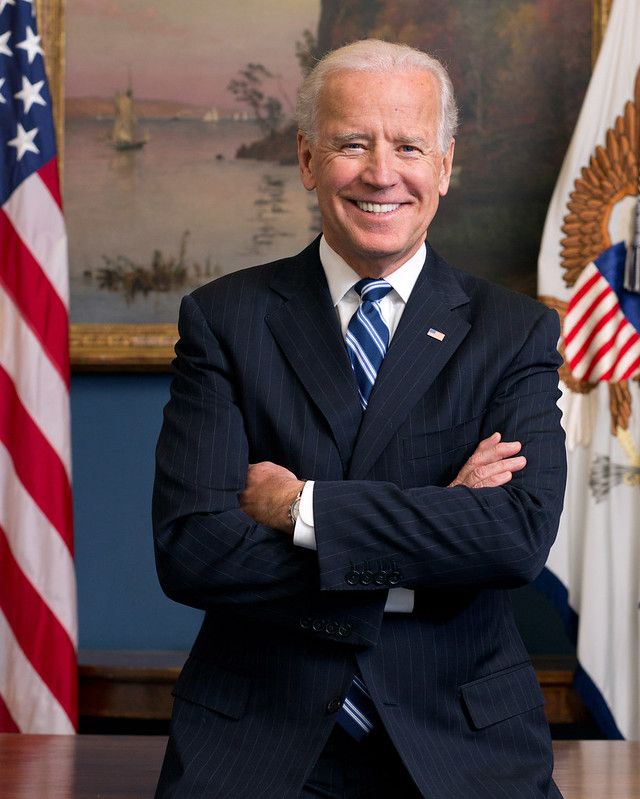President Joe Biden has only just gotten his feet under the resolute desk, but is already facing an uphill battle to secure the future of the United States. His inaugural speech – far from being a rallying cry for a future vision of the country – was sombre, dripping with realism and fear for what lay ahead.
Unlike many presidents who have their Cabinet confirmed ahead of Day 0, Biden walked into the White House without a Secretary of Defense, or Homeland Security. His first actions as president were not to enact a bold campaign promise – Barack Obama closed Guantanamo Bay and ended funding for foreign anti-abortion groups with the first stokes of his pen – but to mandate mask wearing in federal buildings.
Facing the worst public health crisis in a century, and a nation more divided than at any point since 1865, Joe Biden promised little beyond his own pragmatism and hope for a better America. There was no bold vision of hope and change or a promise of better America, only a promise that he would reverse the past four years of chaos and try to steer the nation through the crises it currently faces, hoping to lead them back on to the path of prosperity that president’s typically promise.
His first actions were to address the most immediate and pressing issues currently facing the United States; the pandemic and the failures of his predecessor – with the latter worsening the severity of the former. Cancelling the traditional inaugural balls and installing Perspex glass between staffers’ desks, Biden’s first major challenge is to bring adults back into an executive whose power had been diluted by Twitter spats and toxic masculinity. His first few weeks, will be much like those faced by his former boss Barack Obama, who instead of moulding America in his own image, was forced to firefight in the wake of a global financial crisis.
Biden’s first major challenge is to bring adults back into an executive whose power had been diluted by Twitter spats and toxic masculinity.
Biden is in a tougher position than many of his predecessors. Although both houses of Congress are aligned in his favour, it is by the smallest of margins; the Senate an effective tie, only broken by his Vice President, Kamala Harris, being the President of the Senate and holding the 101st vote in a tiebreaker. This will make it an immediate challenge to tackle even the short-term issues of the pandemic and economic crises. The transition team’s published plan for a $1.9 trillion stimulus package is more than double the American Reinvestment and Recovery Act (ARRA), the biggest stimulus in American history to this point.
One of the few promises he made in his 21-minute inaugural address was to take tougher – national – action against Coronavirus. This points towards, mandated mask wearing in all public places, or national level stay at home orders; unpopular policies that will face tough opposition in both houses. Should he lose a single Democrat in the Senate, any of his immediate plans will be scuppered, especially with many Republicans objecting to the legitimacy of his presidency; until many realised the gravity of the situation when they put their lives in danger on 6th January.
The unravelling of his predecessor’s presidency in the final two weeks would appear to have bought him some goodwill amongst the GOP, with Lindsay Graham and Mitch McConnell seeming to suggest they would lay down their swords to support the new administration in overcoming the immediate crises. However, there is nothing to suggest that they mean it. With Republican’s fighting tooth and nail against ARRA in 2009 and a Congress less configured in his direction than Obama had, Biden will face a challenge in passing immediate legislation on issues that could prove unpopular.
Goodwill amongst the Republican Party, and the country, could quickly evaporate if he pursues tough but necessary action to fight coronavirus – especially given the power vacuum in setting the legislative agenda that came from the White House under his predecessor.
An executive whose occupant was once considered the leader of the free world, the oval office vacuum diminished the executive’s power to mandate real and effective change. Joe Biden will need to restore faith in the power of the federal government if he is to successfully defeat any of the challenges he faces.
He is best placed to meet this moment and attempt to forge the unity he has promised.
It will be a test of his promise of unity and the relationships he built up during five decades on Capitol Hill. Famous for his relationships across the aisle whilst a Senator for Delaware, Biden was known as a man who could cut deals with the other side to build effective coalitions and compromises. As Vice President, he was often the one speaking with former Senate colleagues to get major Obama-era legislative proposals through the Senate. These relationships will no doubt be tested in the coming weeks when he tables controversial restrictions and expansive economic proposals, but with few more experienced or popular amongst their Washington D.C. colleagues, he is best placed to meet this moment and attempt to forge the unity he has promised.
Donald Trump not attending the inauguration of the 46th President was a blessing for Biden. The day was an opportunity for unity to be projected from the steps of the Capitol for the first time in four years. Flanked by three former presidents at Arlington Cemetery – laying a wreath for fallen soldiers in his first hours as president – he was able to create a picture that government by adults was back and that both he and Republican colleagues would work together on the immediate crises the nation faced.
This did not extend to all colleagues, and a number of Trump’s allies in Congress – those seeking to run as his successor to the Republican throne in 2024 – were still projected the bile and falsehoods that had characterised the outgoing era. Ted Cruz, suggesting that the Paris Climate Accords was to benefit the people of Paris, not Pittsburgh, clearly did not get the memo that Republican’s and Democrats are supposed to work together again. It seems unlikely that Josh Hawley, Marco Rubio and other Republicans seeking to replace Donald Trump at the top of the tree will get on board with the new unity train either.
This creates a clear problem for Biden, as the goodwill towards him wont last.
Does he focus on the immediate crises facing the country with Republican support, or does he seek to enact some of his more longer-term reforms that will undoubtedly be blocked once the celebrations for ousting Trump have subsided amongst the less fanatical Republicans?
Beyond the first weeks and months in office, Biden will face key challenges, particularly on the world stage, that might come to define his presidency. Donald Trump’s infamous attempt to forge ties with dictators and outgoing shots at Iran and China could create diplomatic tension that need to be addressed in the early months of his presidency.
Donald Trump’s approach to the presidency not only creates a vacuum in the Oval Office, but in American leadership on the world stage. Biden may have returned the United States to the World Health Organisation and Paris Climate Accords, but the past four years have created lasting damage to global relationships.
No longer are the United States seen as the leaders of the free world amongst many nations, with former US allies striking ties more locally (November saw the striking of a new Asia-Pacific trading block) and others filling the void. Germany and France have stepped up where the United States stepped back, and undesirable leaders such as Vladimir Putin and Xi Jinping have taken the opportunity to forge more aggressive foreign policies; poking the American bear, but getting no reaction.
Biden will need to prove that the bear is no longer sleeping, and that it will bite if any nation’s seek to upset the global balance of power by aggressively pursuing expansionist policies or seeking to assert dominance in the global three-dimensional chess game of geopolitics. Where Trump provoked trade wars in the face of legitimate trade deficits (failing to understand the nature of global trade) Biden will need to pursue diplomatic routes with allies in order to demonstrate that America is reassuming its role at the top of the tree.
Biden’s inaugural address made clear what challenges he faced. A not-so-subtle message to “repair our alliances and engage with the world once again” was a clear indication that he intends for America to end the global power vacuum, whilst his explicit mention of Coronavirus, economic crises, climate change and racial injustice laid bare the initial priorities and challenges he faces.
The five-decade veteran of Washington D.C. will have to hit the ground running if he is to succeed and “master this rare and difficult hour”. He may be uniquely placed to build the coalitions to pass the legislative agenda needed to arrest America’s current woes, but as Biden finally gets his feet under the resolute desk, he will faces an uphill battle to make the effective change needed at this moment.
_____________________________________________________________________________

Calum Paton is a History and Politics graduate from the University of Warwick and he is currently studying a MA at the University of Law. His writing predominantly focuses on American and British politics. Twitter: @Paton_Calum




